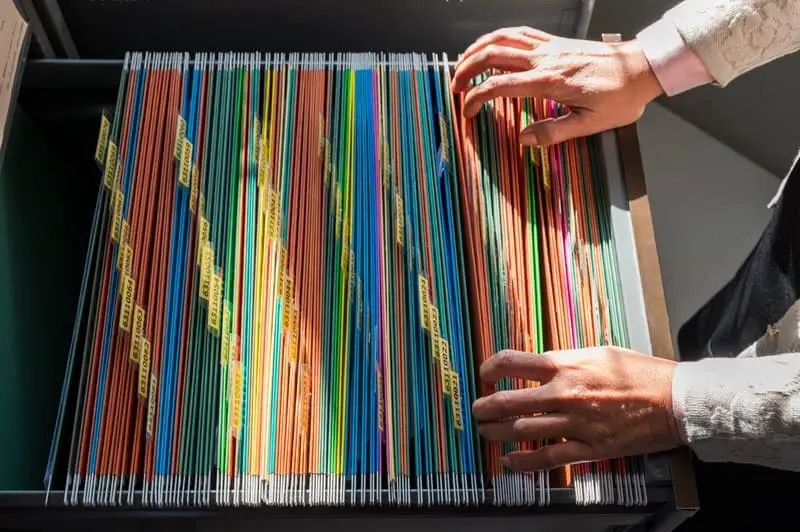Some people get easily intimidated by the idea of managing their own finances. It seems challenging to accomplish and time-consuming. But have you ever come to a point where you suddenly rethink your decisions and wondered, “Where did my money go?”
When we don’t get things figured out before payday, our hard-earned money will be spent more likely at every expense we can think of, both for our wants and needs. Handling our personal finances entails dedication and commitment to our financial goals. If we get paper bills and just pay every single bill monthly without comparing and preparing for the next one, we are just collecting paper. But, if we make time to lay down the expenses and do the math, we will have an idea of how much it will take from our income, and we can prepare for the next one – this is budgeting.
Possessing even just basic knowledge on organizing our income and expenses can keep us away from financial hardships. There are simple ways on how to do it. Here’s how.
Steps in Organizing your Finances
1. Organize your Financial Paperwork

Set up a filing system for receipts and paper bills or groups and label them accordingly in folders on your computer. Secure these data together in a safe place for easy monitoring and access to your financial records.
Setting up your own home filing system can help you sort and organize important files and documents. Clutter can mess up your thoughts and maybe discouraging, at first sight, thus establishing a system is the solution.
You can choose to file alphabetically, by date, by company, by category, or some other ways depending on your preference. Make sure to label each file accordingly and store it in separate folders.
You can also create a color-coding system for each file so they can be easily recognizable. If you opt for paperless, you can also make use of Google Sheets. This can be a convenient way to access and manage your personal finances.
Here’s a suggested list of headings and subheadings by personal-finance for your home file system to get you started. As you keep working on your personal finances over the months, you can add/remove details as you need to customize it for your personal needs.
- Bills
- Paid Bill Receipts
- Unpaid Bills
- Tax Receipts
- Papers to File
- Financial Accounts
- Banking
- Canceled Checks
- Account Books
- Statements
- Credit Card List
- Credit Card Receipts
- Deposit Slips
- Installment Agreements
- Loan Contracts
- Safe Deposit Box
- List of Contents
- Key
- Banking
- Investments and Savings
- Bank Savings
- Credit Union
- Money Market Accounts
- Mutual Funds
- Stocks and Bonds
- Other Investments
- Insurance Papers
- Automobile
- Fire
- Health and Accident
- Homeowner’s Policy
- Liability
- Life
- Long Term Care
- Property
- Theft
- Accounts and Records
- Account Book
- Automobile Records
- Computer Back-up Files and Password
- Magazine Subscriptions
- Child Care
- Education Information
- Transcripts
- Diplomas
- Employment Records and Resumes
- Equipment Warranties and Instructions
- Health Benefit Information
- Health Records
- Household Inventory
- Income Tax Records
- Letter of Last Instruction
- Living Will
- Durable Power of Attorney for Health Care
- Power of Attorney
- Property Tax Records
- Real Estate Records
- Social Security Records
- Wills (copies)
- Correspondence
- Personal
- Business
- Personal
- Address List
- Birthday Dates
- Holiday Card List
- Gift Suggestions
- Hobbies
- Organizations
- Church
- Civic Groups
- School
- Reference Material
- Budgeting
- Equipment manuals
- Information about planned purchases
- Warrantees
- Other information
2. Follow the four steps in creating a budget

Budgeting is the main act. Here are four easy steps on how to do it.
- List out your sources of income. If you are in a dual-income household, include the take-home pay of your spouse.
- Make a list of all your expenses, including debts. Allocating a budget for each identified category of your fixed expenses such as food, rent, insurance, etc., and flexible spending – like clothes, entertainment will allow you to determine the average outflow and tips that may work for you to manage your personal finances successfully.
- To make our budgeting effective, we must stick to our budget. Some instances would require an increase in the amount for a certain category, so assessing the situation is important. We can reduce the budget on other stuff (like for entertainment) for a helpful compromise.
- Tracking our spending will help identify the categories as to where we spend our money. Reviewing the budget regularly especially if we are new with budgeting, will help evaluate the effectiveness of our chosen budgeting plan. Our monthly budget may be unfixed due to certain factors like an emergency, food restrictions, etc., but note that adjustments are expected along the way. So, don’t worry if you have to revise and apply changes when needed.
3. Note down payment days

Knowing what bills to pay and when the payments are due is important in taking control and maintaining an organized financial life. In the middle of a busy work schedule, there is a big possibility that we can miss payments.
Noting payment deadlines to a calendar will be very helpful in avoiding not just late fees and penalties, but can save you money and reduce stress.
We can also set up automated transfers regularly, just to make sure we pay on time. If you want to improve your credit score, this is a way to do it. Creditors will more likely offer better terms and even low-interest rates to a prompt payer.
4. Pay off Debt

Paying off debt must also be a priority. Having multiple debts may be difficult to manage and may exhaust your willpower. Evaluating debts and the corresponding interest rates will give us a clear scenario of our current financial situation.
If there’s a chance to consolidate debts, grab it. Having to manage one account and one payment each month is simpler and easy to handle.
There are different approaches to paying off debts. You can consider the following factors: balance, interest rates, and limit utilization.
Final Thoughts
Adults are faced with varying stress factors and dealing with finances is one of them. Financial instability can affect one’s overall health and well-being, as having multiple debts can even deprive a person of sleep, or lacking emergency funds after unemployment can result in depression. But having the basic knowledge and self-motivation to actively manage our finances can save us from the pressure on money matters, and help us achieve our personal goals.
In managing personal finances, choose whatever that works for you.
As for me, before the year starts, I would buy myself a planner and convert it into a financial diary. I divide each page into columns and list all categories and their corresponding budget. I compile withdrawal slips and receipts in an envelope so I can just go back and track the in and out of cash monthly.
This old school way gives me ease that I can trace every spending, and it gives me a sense of validity that I was able to fulfill my monthly savings goal and make timely payments.
Being comfortable with a certain established system eventually becomes a routine than an obligation. When something works for you or a goal has been achieved, you will be more inspired to create bigger financial goals and venture more on not just saving but on investments and even mutual funds.
Organizing our finances is a key factor to clear our mind from financial strain. It can promote positive financial health and attitude. Significant changes may be visible in the future, but our effort is needed a.s.a.p. So let’s grab that paper, and let’s do the math!

